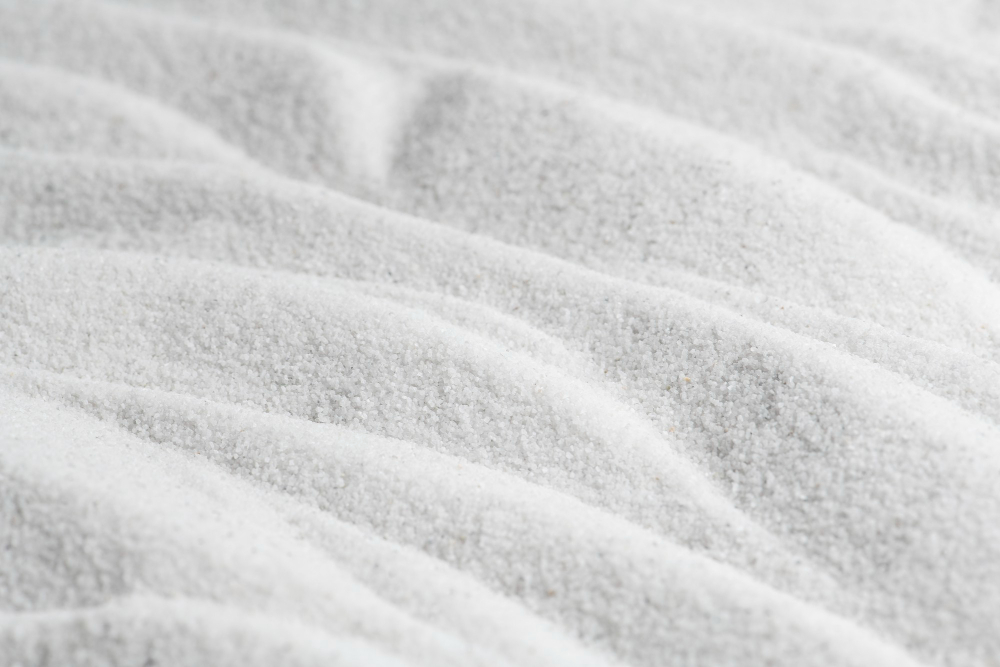Salt is more than a flavour enhancer — it’s a vital nutrient and a cornerstone of global food production. Yet, few people realise the amount of science and precision that goes into producing the everyday salt found on our tables.
In India, particularly in Gujarat, edible salt manufacturing has evolved into a highly technical, safety-focused process. As one of the leading edible salt manufacturers in Gujarat, Gurave Salt has helped shape the standards for quality, purity, and safety that define the country’s reputation as a trusted global exporter.
Gujarat: The Heart of India’s Edible Salt Industry
Gujarat accounts for nearly three-fourths of India’s total salt output, with coastal regions like Bhavnagar, Kutch, and Jamnagar leading production. The region’s long coastline, high evaporation rates, and saline groundwater make it ideal for both solar salt and refined edible salt production.
This unique geography, paired with decades of expertise, has positioned Gujarat as a hub for FSSAI-certified edible salt manufacturing and exports. Companies like Gurave Salt combine traditional salt farming with modern purification systems to produce food-grade salt that meets international safety and nutritional standards.
The Science of Edible Salt Refining
Producing high-quality edible salt isn’t just about harvesting — it’s about refinement. As a leading name among edible salt manufacturers in India, Gurave Salt ensures every crystal meets rigorous food safety requirements.
1. Solar Sea Salt vs Vacuum-Refined Salt
- Solar Salt: Harvested through natural solar evaporation in salt pans. It’s eco-friendly and rich in trace minerals like magnesium and calcium.
- Vacuum-Refined Salt: Undergoes mechanical washing and evaporation in controlled environments, producing ultra-pure crystals ideal for food processing and packaged products.
Both methods have their advantages, and the choice depends on the end use — from table salt to bakery ingredients or pickling-grade salt.
2. Multi-Stage Purification
At Gurave Salt, purification involves washing, centrifuging, and drying under precise temperature control. This ensures the removal of impurities, residual moisture, and microbial contaminants while maintaining natural iodization levels.
3. Iodization and Enrichment
India’s National Iodine Deficiency Disorder Control Programme (NIDDCP) mandates iodization of all edible salt. As a responsible manufacturer, Gurave Salt fortifies its products with iodine and potassium to promote better public health outcomes.
Food Safety: A Non-Negotiable Priority
Food-grade salt is consumed daily, which means safety cannot be compromised. Leading edible salt manufacturers in Gujarat follow stringent certifications and compliance protocols to ensure quality.
Quality and Safety Standards
- FSSAI Certification: Confirms compliance with India’s food safety laws.
- ISO 22000 & HACCP: Guarantee safe production, storage, and packaging.
- BIS Standards (IS 7224): Define chemical composition, purity, and particle size.
Each batch produced at Gurave Salt undergoes laboratory testing for sodium chloride content, iodine levels, moisture percentage, and insoluble matter — ensuring consistent, export-grade quality.
Edible Salt in India’s Global Export Story
India has become a key global exporter of refined and iodized salt, thanks largely to edible salt manufacturers in Gujarat. Countries in the Middle East, Africa, and Southeast Asia rely on Indian salt for its purity, consistency, and competitive pricing.
Why Indian Edible Salt Is Globally Trusted:
- High sodium chloride purity (98.5% and above).
- Naturally harvested using sustainable methods.
- FSSAI and ISO-certified processes ensure safety and reliability.
- Custom packaging options for retail and industrial applications.
As part of this export network, Gurave Salt continues to expand its footprint, supplying premium-grade edible salt to both domestic brands and international distributors.
Infographic Idea: Industrial vs Edible Salt
| Parameter | Industrial Salt | Edible Salt |
| Use | Chemicals, detergents, water treatment | Food processing, cooking, packaging |
| Purity Level | 95–98% NaCl | 98.5–99.5% NaCl |
| Refining Method | Solar or mechanical | Multi-stage washing & vacuum refining |
| Iodization | Not required | Mandatory under FSSAI |
| Certifications | ISO, industrial safety standards | FSSAI, HACCP, ISO 22000 |
This clear comparison helps customers understand why edible salt manufacturers in India operate with such strict safety and purity protocols.
FAQ: Is Indian Edible Salt Export-Quality?
Answer:
Yes. India, and particularly Gujarat, exports FSSAI-certified, ISO-compliant edible salt that meets or exceeds global purity standards. Manufacturers like Gurave Salt ensure every batch is refined, iodized, and packaged according to international food safety guidelines.
These quality controls make Indian edible salt a preferred choice in more than 35 countries across Asia, Africa, and the Middle East.
Sustainability: Cleaner Production, Healthier Planet
At Gurave Salt, sustainability is woven into every step of production:
- Solar Evaporation: Reduces energy dependence.
- Water Recycling: Conserves coastal resources.
- Eco-Packaging: Minimises environmental footprint.
This commitment helps ensure that the salt nourishing millions worldwide is produced responsibly and safely.
Final Thoughts
Edible salt may seem simple, but its production is rooted in science, precision, and responsibility. Gujarat’s salt fields — powered by the sun and refined by innovation — have positioned India as a global leader in food-grade salt manufacturing.
As one of the trusted edible salt manufacturers in Gujarat, Gurave Salt continues to uphold purity, safety, and sustainability in every grain. From harvest to packaging, our mission is clear: to deliver salt that’s as pure as nature — and as safe as science.
